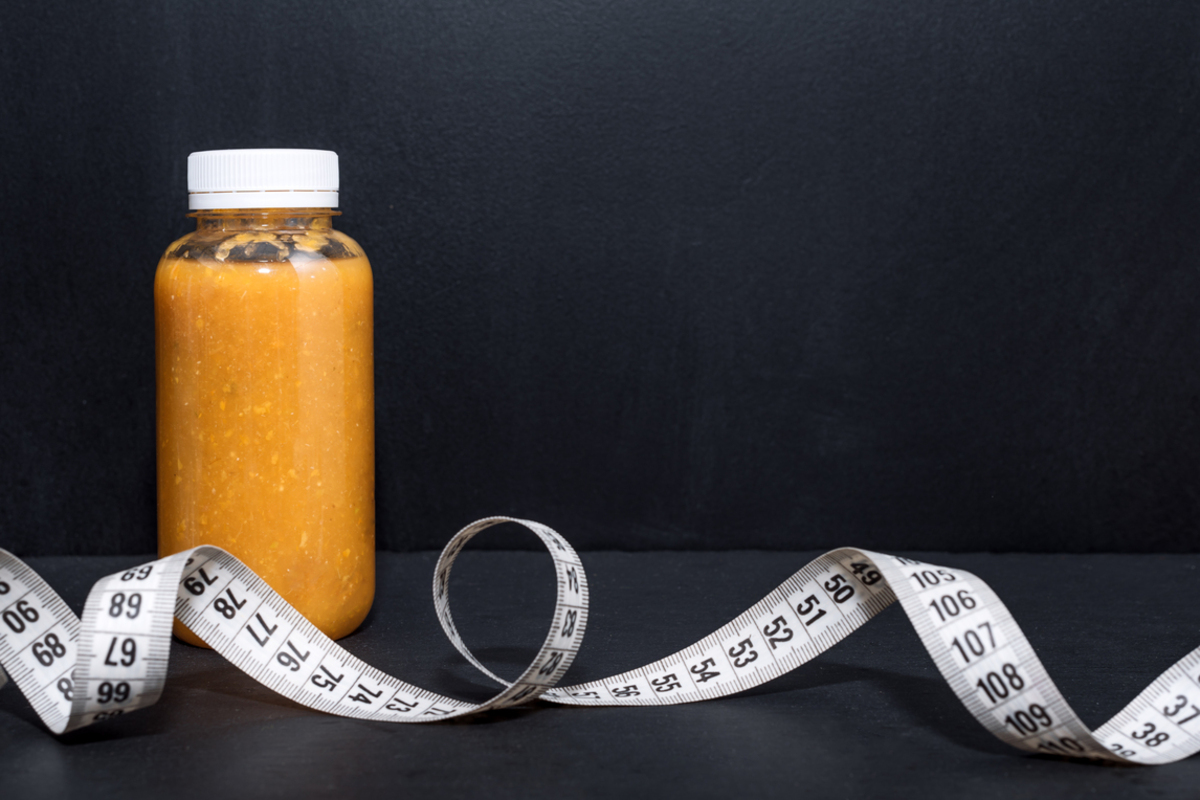Most people who have ever tried to lose any amount weight have cut down on their total daily calorie intake achieve their goal. Burning more calories than you consume, in any way, will result in a deficit, and with time, (not necessarily very significant) weight loss. The bigger your calorie deficit, the more weight you will lose, and the more quickly.
A “very low-calorie diet” is, however, not just any low-calorie diet — it’s medically defined as a daily calorie intake of between 450 and 800.

What do you need to know?
A very low-calorie diet: Don’t try this at home
Very low-calorie diets — also referred to simply as VLCDs — aren’t for just anyone with a few extra pounds. They aren’t a neat way to lose a little bit of excess weight by yourself, as a diet of between 450 and 800 calories can damage your health unless it is designed by a medical team and you are the right candidate for a diet like this. Healthy and sustainable weight loss is usually gradual, and achieved through a combination of healthy eating that includes all the nutrients you need and regular physical activity. You’ve heard this song already, but we repeat it because it’s true and it’s important.
You should never attempt to embark on a low-calorie diet without your doctor’s recommendation — and supervision. A dietitian or nutritionist will usually be involved in planning such a diet, as well. Serious and detailed discussions about the pros and cons of a very low-calorie diet should take place before starting one. A very low-calorie diet generally shouldn’t last more than 12 weeks, and should be packed with lots of essential nutrients.
A low-calorie diet isn’t safe for you by definition if you are under 18, have or ever had an eating disorder, or are pregnant or breastfeeding. Very low-calorie diets are also incredibly likely to fail to meet all your daily nutritional needs if you try them independently. They also come with their own set of very likely side effects:
- Hunger
- Dry Mouth
- Low energy
- Dizziness
- Headaches
- Diarrhea
- Cramps
So, who might a very low-calorie diet be for?
The first would before weight loss (bariatric) surgery, to get the patient down to a safer weight that lowers the amount of fat in the abdomen and reduces the size of the liver, in turn lowering the very real risks of complications during and after the operation.
Though practices vary, it is typical to be on a liquid VLCD for one or two weeks prior to surgery, and in general, patients lose a significant number of weight, don’t feel too hungry, and don’t find the VLCD regimen to be too difficult to stick to. (There is some controversy regarding the fact that many hospitals and insurers require these diets for their morbidly obese patients before weight loss surgery, however, as the practice of spending some time on a very low-calorie diet does delay potentially life-saving treatment.)
Very low-calorie diets are also sometimes used as stand-alone weight loss programs that last longer — and are, again, strictly medically supervised by a whole team of healthcare providers who will monitor the patient's health and progress. With this diet, you may be losing around three to five pounds a week, or even more.
However, some people whose doctors have placed them on VLCDs for longer periods of time will find these diets psychologically and physically hard to cope with, and there is some evidence that, compared to “just” low-calorie diets, which contain a higher calorie intake of between 800 and 1,500 calories a day, they are more likely to induce binge-eating and possibly even depression.
It is, therefore, very important for both patients and their healthcare teams to consider this kind of diet carefully before embarking on one.
What’s in a very low-calorie diet?
A low calorie diet usually consists of specially-formulated liquid foods enriched with protein and nutrients. It replaces normal food with bars and shakes. A typical very low-calorie diet might contain 75 g of protein, 45 g of fat, and 25 g of carbohydrate — and people placed on such diets can expect to consume five smaller shakes a day, a meal frequency that minimizes their feeling of hunger.
- Photo courtesy of SteadyHealth
- www.nhs.uk/live-well/healthy-weight/very-low-calorie-diets/
- www.uclahealth.org/clinicalnutrition/vlcd
- www.ncbi.nlm.nih.gov/books/NBK311324/
- https://www.ncbi.nlm.nih.gov/pubmed/30128643


Your thoughts on this